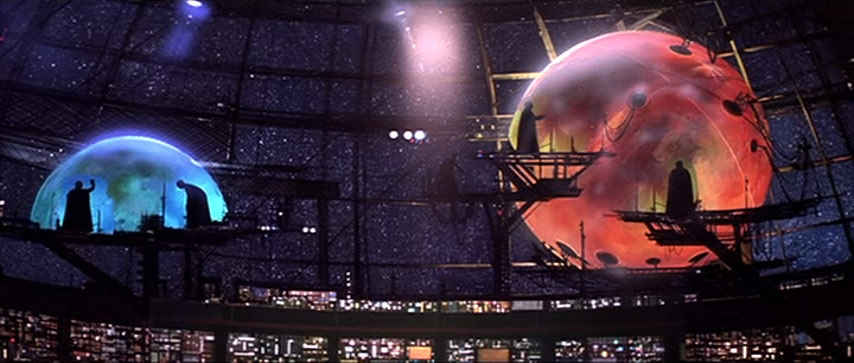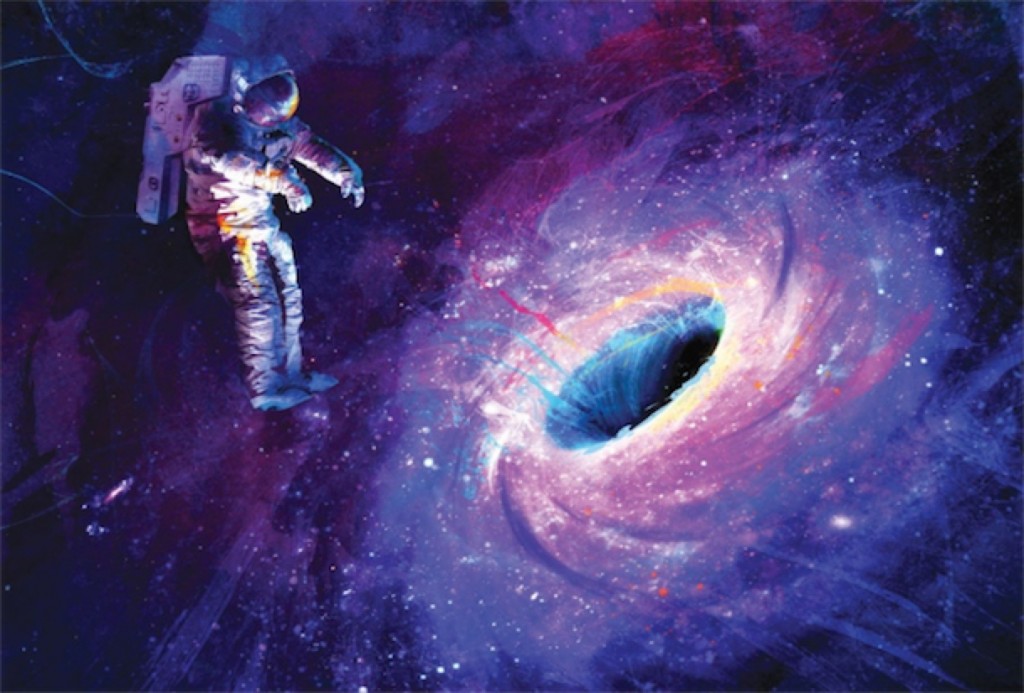21st Century Wire says…
The quandary of the black hole has always confounded scientists, as well as science fiction authors and filmmakers. The big question being: what happens after you fly into a black hole?
Numerous science fiction books and films have tabled various scenarios as to what an interaction with a black hole might produce. The results have ranged from epiphany, to time travel, to ultimate peril. From Disney’s 1979 classic, Black Hole, to the 1997 sci-fi noir film Event Horizon, and later with the 2014 blockbuster hit Interstellar, which imagined what it would be like for a spaceship traveling through a wormhole – it remains anyone’s guess what could happen in this epic confrontation between relativity and the singularity.
This new study out of Portugal shed some light on a quantum probability that has so far stumped two generations of inquisitors…

BLACK HOLE: Ascene from the 1979 Walt Disney science fiction film classic.
A spacecraft could survive a journey through a wormhole in the center of a black hole and pass into another universe despite its strong tidal forces, according to theoretical physicists.
A new study conducted by Diego Rubiera-Garcia, of Instituto de Astrofísica e Ciências do Espaço (IA) in Portugal, and his team, published in the journal Classical and Quantum Gravity reconsiders Einstein’s theory that black holes destroy everything within their reach.
A wormhole is a theoretical passage through space-time that could create ‘shortcuts’, facilitating journeys across the universe. It was proposed by Albert Einstein and Nathan Rosen with the aid of the theory of general relativity in 1935.
The hypothetical structure was considered unstable, however, and at risk of collapsing on any particle passing through it at the point of ‘singularity’ – where the forces of gravity are at their most intense, and where time and space effectively end.
However, following their analysis of what causes the destruction, Rubiera-Garcia and his team say the problem is much“subtler”.
“In practical terms, we dropped one assumption that holds in general relativity, but there is no a priori reason for it to hold in extensions of this theory,” Rubiera-Garcia told Phys.org.
They examined various objects as an aggregation of points interconnected by physical or chemical interactions holding them together.
“Each particle of the observer follows a geodesic line determined by the gravitational field. Each geodesic feels a slightly different gravitational force, but the interactions among the constituents of the body could nonetheless sustain the body,”Rubiera-Garcia said.
The study found that the time a light ray takes in making a round trip between any two nearby geodesics is always finite and causal despite the infinite (spatial) stretching caused by the unbounded tidal force.
This suggests that curvature divergences may not be as extreme as traditionally thought, the study states.
“Our observer could get swallowed into the black hole, cross the wormhole throat, exit through the other side, and live to tell it regardless of the existence of infinite tidal forces,”Rubiera-Garcia explained.
Get 10% off a 21WIRE TV membership package today using promo code: STU21WIRETV
MORE MIND BENDING SCIENCE: 21st Century Wire Science Files
















